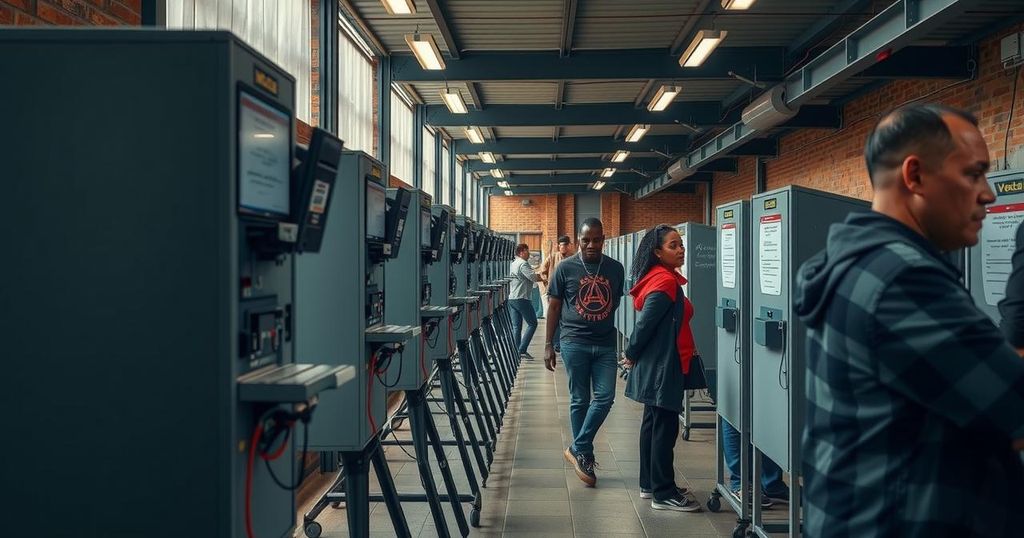Namibia’s electoral agency has extended voting due to ballot shortages and technical issues, contested by opposition parties alleging fraud. Vice President Nandi-Ndaitwah seeks to be the first female leader amidst youth dissatisfaction over economic conditions. Past elections have been credible, but current challenges reflect a shifting political landscape.
Namibia has extended the voting period for its presidential and parliamentary elections into the weekend due to technical difficulties and a shortage of ballot papers. Initially scheduled to conclude on Wednesday, the electoral agency announced that polling stations will now remain open until Saturday night as many locations experienced significant delays in receiving the necessary ballots. The Independent Patriots for Change, the leading opposition party, has labeled the extension as illegal, alleging potential electoral fraud.
This extension of voting occurs against a backdrop of unrest in the region, specifically in Mozambique, where violent protests erupted following claims of vote rigging after the long-established Frelimo party won the recent elections. Netumbo Nandi-Ndaitwah, Namibia’s vice president and SWAPO party candidate, is poised to potentially become the first female leader in Namibia’s history if elected, yet faces strong opposition from an increasingly disillusioned youth unhappy with the lack of job opportunities in a country rich in natural resources but marked by stark income inequality.
The chairperson of the Electoral Commission of Namibia, Elsie Nghikembua, stated that logistical issues contributed to many voters not being able to cast their ballots. Long queues have been reported at polling stations, with several rural areas still awaiting ballot paper deliveries, fueling skepticism among voters about the electoral process. One voter expressed frustration at being unable to vote over several days, illustrating the challenges faced by many in this electoral cycle.
Approximately 1.4 million Namibians are registered to participate in these elections, which will determine both the next president and the composition of parliament for the next five years. Since gaining independence in 1990, Namibia, formerly a German colony, has been governed by the SWAPO party, which fought for the country’s liberation from colonial rule. While past elections have been generally viewed as credible, frustrations over economic conditions and unemployment have led to a growing desire for change among the electorate, mirroring trends observed in other southern African nations recently.
This article discusses recent developments in Namibia’s presidential and parliamentary elections, specifically the extension of the voting period due to logistical issues and ballot shortages. These problems have raised concerns regarding the integrity of the electoral process and have led to accusations of fraud from opposition parties. This situation is compounded by ongoing unrest in Mozambique and reflects broader regional trends in southern Africa where disillusionment with long-standing ruling parties is growing, especially among younger voters.
The decision to extend the voting period in Namibia has sparked criticism from opposition parties, who view it as a harmful deviation from the electoral norms. With significant logistical challenges affecting voter participation, this situation threatens the credibility of the election process. As historical trends in southern Africa show a shift in favor of new political leadership to address systemic issues, it remains to be seen how these elections will impact Namibia’s political landscape moving forward.
Original Source: abcnews.go.com






